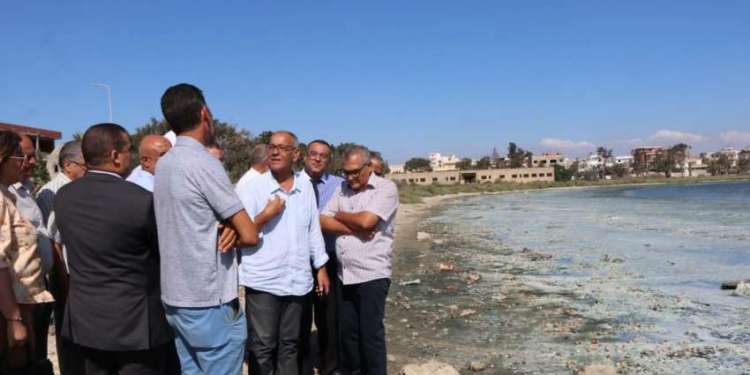On Monday, Environment Minister Habib Abid visited the delegation of Korba (Governorate of Nabeul), where he assessed the extent of environmental pollution affecting the Tazarka sebkha (salt flat), caused by the discharge of polluted industrial wastewater from the region’s industrial zone.
On this occasion, the minister met with local officials to discuss upcoming environmental projects planned for the city of Korba, as part of the 2026–2030 Local Development Plan, while urging immediate action against industrial violations identified in the area.
Abid also launched several green space rehabilitation projects in Korba and ordered the delivery of 50 waste containers to the Nabeul governorate to support the efforts of tourist municipalities. He also instructed authorities to carry out the cleaning of the Boulidine stream.
In a statement to the national news agency TAP, Aref Nachi, a member of the Korba local council, emphasized that the minister’s visit was an opportunity to witness firsthand the longstanding pollution issues in Tazarka, mainly due to the direct discharge of waste and untreated industrial water into the sebkha.
He pointed out that the pollution is largely a result of the absence of wastewater treatment plants in most industrial units in the region. Out of 23 industrial facilities operating in the zone, only 9 currently treat their wastewater in accordance with national standards and are eligible to be connected to the public sanitation network.
And he went on to explain that the installation of industrial wastewater treatment plants within industrial units is a prerequisite for connecting these facilities to the public sanitation network.
This is because the treatment systems operated by the National Sanitation Office (ONAS) are designed specifically to treat domestic wastewater and are not equipped to directly handle industrial effluents containing chemical substances or heavy metals such as chlorine and zinc.
According to him, the local council and the municipality of Tazarka are calling for urgent solutions to the pollution problem affecting the Tazarka sebkha.
They are demanding an immediate halt to the unregulated discharge of polluted water, the connection of the industrial zone to the public sanitation network, and the mandatory installation of wastewater treatment plants in all industrial units.
Source: nessma




